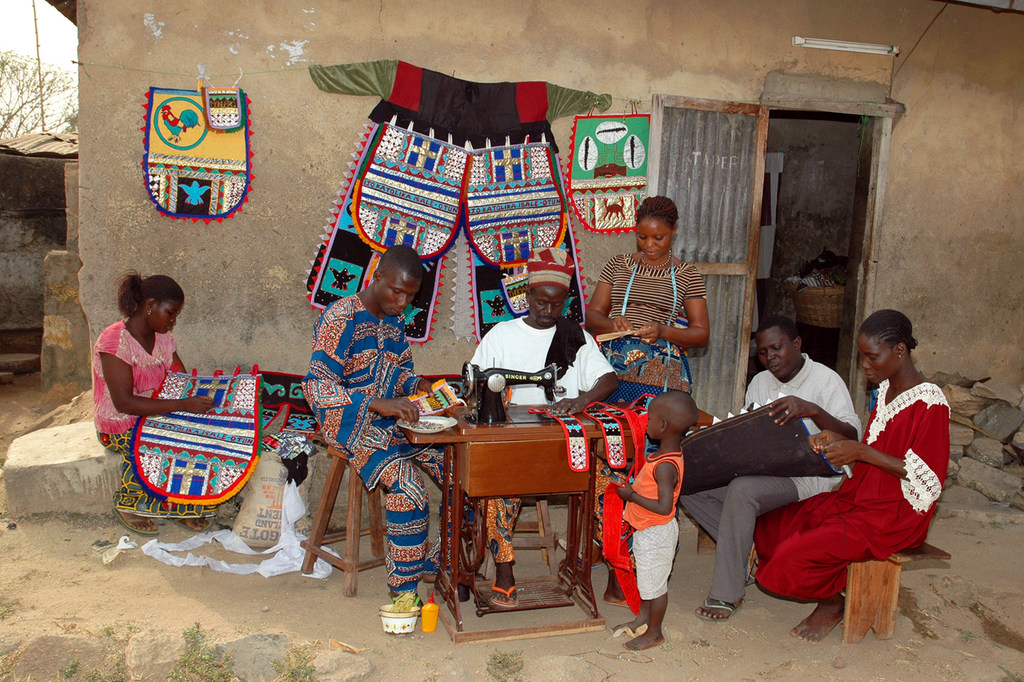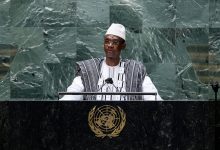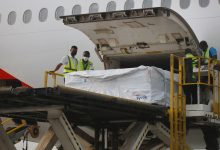Use Africa’s rich heritage as ‘catalyst’ for transformation, urges Guterres
 A call to use Africa’s rich cultural and natural heritage as a catalyst for growth and transformation is “the right appeal at the right time”, the UN chief told a three-day forum on the continent’s future held online on Wednesday.
A call to use Africa’s rich cultural and natural heritage as a catalyst for growth and transformation is “the right appeal at the right time”, the UN chief told a three-day forum on the continent’s future held online on Wednesday.
Opening the 2021 Africa Dialogue Series, Secretary-General António Guterres said that the discussions highlight “the importance of arts, culture and heritage in building the Africa we want”.
“I welcome your focus on cultural identity”, he added.
New social contract
Against the backdrop of a global spread of hate and intolerance, the UN chief stressed that “we must not only defend diversity but invest in it”.
“Societies today are multi-ethnic, multi-religious and multi-cultural”, he reminded. “This is a richness, not a threat”.
To ensure that every community feels its culture and identity is being respected, Mr. Guterres underscored that better ways must be found to “redress the ills of he past that have bred mistrust and division”.
He asserted that an emphasis on culture, heritage and shared values can help “build unity and common purpose”, which could also help overcome disruption due to COVID, and foster peaceful, sustainable development.
“We need to move towards sustainable economic growth that protects the environment, promotes human rights and strengthens the social contract…[and] a stronger sense of solidarity and multilateral cooperation to achieve the Sustainable Development Goals (SDGs)”, he said.
Pursue ‘solidarity’
As the impacts of the pandemic continue, the Secretary-General called for “clear solidarity” with the continent.
He said it was “unacceptable” that vaccines are still not fully available across Africa, citing it as the reason why Africa is “dramatically lagging” in shot distribution.
“I have been insisting with the G20 countries to create a global vaccination plan to reach everybody everywhere and…an emergency taskforce…to make sure that we are able to double the production of vaccines and at the same time to have a network of distribution”, the UN chief explained.
Mr. Guterres said he was also concerned to see 6 per cent projected growth in the international economy but only 3.2 per cent for Africa.
“It is absolutely essential that African countries receive the financial support they need at the present moment to protect their citizens and to be able to relaunch their economies”, calling for “effective debt relief [to] be put at the disposal of African countries”.
Transformative agenda
The Special Adviser on Africa, Cristina Duarte, urged participants to “seize the opportunities” provided by COVID to “change our mindset” and approach Africa’s development with “forward-thinking”.
She saw it as an opportunity for an African cultural renaissance, inculcating “the spirit of Pan Africanism, tapping into Africa’s deep well of rich heritage and culture to ensure that our destiny is built and owned by us”.
Understanding that culture goes beyond artistic demonstrations and entails a deep feeling of belonging to a community ready to exercise ownership of its own development, the UN official called it “a trigger of sustainable development”.
Bridging the gap
The Special Adviser drew attention to a widening divide each time a global milestone or major development is realized.
“The rollout of the COVID-19 vaccines is just a new example, that follows the digital divide, the energy divide, and a long etcetera”, she said.
Ms. Duarte concluded by saying: “This is our opportunity to put an end to a vicious cycle by promoting far-reaching transitions that, based on the spirit of global solidarity, enable a transformation in all areas of development”.
‘Key’ development driver
General Assembly President Volkan Bozkir said that the societal impact of culture “cannot be overstated”.
“Culture shapes our identities…gives meaning, purpose and a sense of belonging…and is imperative for social cohesion”, he elaborated.
During an Assembly meeting last week, the President said that Member States showcased best practices to leverage cultural and creative industries in recovery plans to support the delivery of the SDGs and hailed it as is “a key driver of sustainable development” with the unique ability to shift human behaviour.



